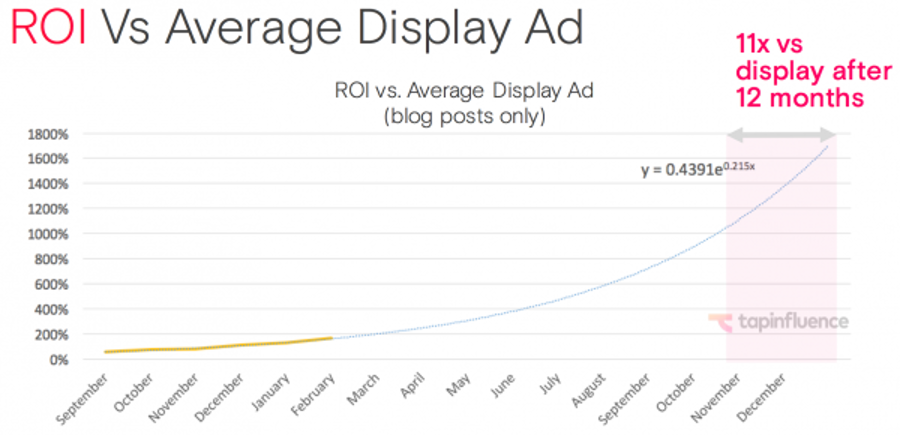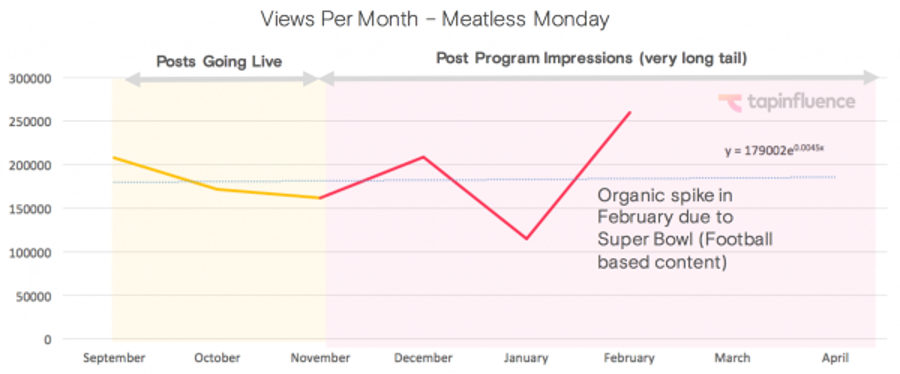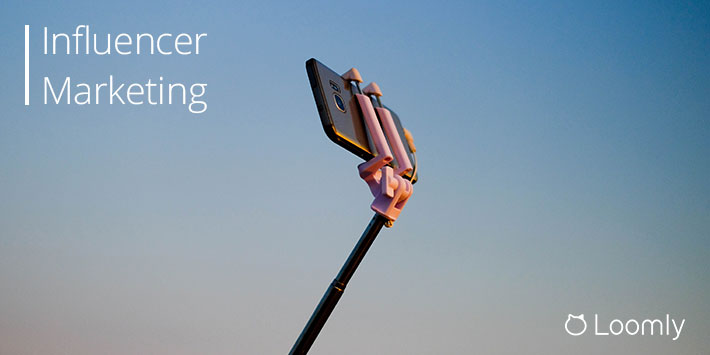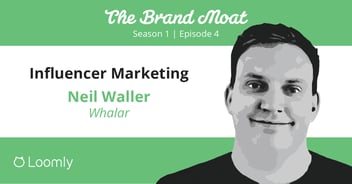Influencer Marketing FAQ
Looking to use influencer marketing as part of your brand strategy?
You’re not alone.
In a 2020 survey, 79% of respondents confirmed that they had increased their influencer marketing budget. And two-thirds also said that influencer marketing had a better return on investment than traditional advertising campaigns.
But you likely have more questions, such as how much you should pay an influencer? Or whether you should engage an influencer marketing agency?
Stay tuned!
In this influencer marketing FAQ, the Loomly Team answers all of your questions.
TABLE OF CONTENTS
- What is influencer marketing?
- Why does influencer marketing matter today?
- What are the benefits of influencer marketing?
- What are the risks of influencer marketing?
- How much does influencer marketing cost?
- How much should you pay influencers?
- What is the ROI of influencer marketing?
- Should you hire an influencer marketing agency?
- What are the best podcasts about influencer marketing?
- How do you become an influencer?
What is influencer marketing?
Influencer marketing focuses on using influencers (key figures) to amplify your brand’s message and increase sales of products and services.
Influencers typically have a large, engaged audience that your brand can tap into to reach a wider audience. Instead of marketing directly to a large group of consumers, your strategy is to inspire, hire, or pay influencers to spread the word.
Influencer marketing often goes hand-in-hand with two other forms of marketing: social media marketing and content marketing. For instance, most influencer marketing campaigns have social media elements, where influencers spread the word through their social profiles. Plus, they also contain a content element in which either you or the influencers create the content.
Why does influencer marketing matter today?
Influencer marketing is not suitable for every brand.
Here are three questions to check if influencer marketing could fit your brand:
- Does your product or service have mass appeal?
- Does your brand have a social media presence?
- Are there relevant influencers for your target market?
Influencer, Amanda Claesson, reckons there are five reasons why your brand shouldn’t ignore influencer marketing.
- Your brand is losing power to influencers and consumers.
- Consumers trust recommendations from influencers.
- The shift of influencers from celebrities to opinion leaders.
- The continued growth of social media.
- People are blocking ads.
Furthermore, the benefits of working with influencers also include:
- Influencers understand their target audience on a personal level.
- You can broaden your brand’s reach.
- You can repurpose content that influencers produce.
- It can be comparatively less expensive than traditional marketing.
What are the benefits of influencer marketing?
Here are six significant benefits to using influencer marketing:
- Builds trust quickly.
- Improves brand awareness.
- Enriches your content strategy.
- Effectively reaches your target audience.
- Provides terrific value to your audience.
- Builds winning partnerships.
What are the risks of influencer marketing?
Here are six risks of influencer marketing, and how to avoid them:
- Instagram influencer engagement is nearing an all-time low — Focus on working micro or nano influencers.
- Inauthentic partnerships and content don’t work — Partner with relevant influencers who have authentic connections to your brand.
- Strict FTC regulations — Focus on publishing content that appeals to audiences and conforms to FTC rules.
- Morality conflicts — Cut ties with a problematic influencer by including a morality clause in any contract.
- Follower farms consist of fake accounts — Focus less on follower counts and more on the quality of the engagement when choosing an influencer.
- Ethical implications — Treat influencers as humans, not a commodity.
How much does influencer marketing cost?
An influencer’s social media post is essentially an advertisement. So, how much do influencers charge for that ad?
According to recent reports, on average, influencers on the following platforms will charge:
- Facebook influencer pricing: $25 per 1000 followers
- Instagram Influencer pricing: $10 per 1000 followers
- Snapchat Influencer pricing: $10 per 1000 followers
- YouTube Influencer pricing: $20 per 1000 followers
Note: These are all rough estimates, as influencers typically don’t share their fees publicly.
A standard method many marketers use to gauge social media influencer rates is the one cent per follower rule, also known as the $100 per 100,000 follower rule. While it’s not a hard and fast rule, it gives you a good starting point on which to base a budget.
Social media influencer rates typically vary greatly and take into account:
- The number of followers and fans the influencer has.
- The amount of engagement their posts generally garner.
- The fit of the advertisement with their brand and following.
- The number of posts you want.
- The type of post, for example, image, video, or audio.
- The amount of effort needed from the influencer – for example, do you provide the image/video, or do they?
- Where the post will be promoted. For example, will it only be on the influencer’s account? Are you cross-posting it? Are you using it in other efforts?
How much should you pay influencers?
There is no magic formula or clear-cut answer to how much to pay an influencer, as they vary from everyday users to well-known celebrities like Kim Kardashian. However, some factors determine the price range of an influence, including:
- Social platform
- Following
- Engagement
- Popularity
There are some specific guidelines used by agencies, marketers, and even the influencers themselves in determining cost.
Instagram:
Instagram is a cost-effective platform with an average price of $1,000, per 100,000 followers. Here are some of the average prices for Instagram influencers:
- $75 – $300 per post, per 3,000 – 15,000 followers
- $300 – $600 per post, per 15,000 to 50,000 followers
- $600 – $800 per post, per 50,000 – 100,000 followers
- $800 – $2,000 per post, per 100,000 – 150,000 followers
- $2,000 – 4,000 per post, per 150,000 – 250,000 followers
Facebook:
Influencers on Facebook often charge about $25 per post per 1000 followers. These are the average influencer prices on Facebook:
- $250 per post, per 10,000 followers
- $2500 per post, per 100,000 followers
- $25,000 per post, per 1,000,000 followers
Twitter:
Twitter has the lowest influencer marketing costs with an average of $2 per post per 1000 followers. Here are some of the possible prices for a Twitter influencer:
- $20 per post, per 10,000 followers
- $200 per post, per 100,000 followers
- $2,000 per post, per 1,000,000 followers
YouTube:
The average cost for a YouTube influencer is $20 a video per 1000 subscribers. However, influencers with a mass following (over a million) tend to break away from this price range.
Snapchat:
The average charge on Snapchat is $10 per post, per 1000 followers. However, the pricing model on Snapchat is slightly different because a user’s follower count is private, and you can only see the Snapchat Story view count.
What is the ROI of influencer marketing?
It’s not always possible to calculate the ROI of influencer marketing. But the results of an influencer marketing program by Nielsen Catalina Solutions and TapInfluence for Silk Almond Milk revealed the following:
- Households exposed to influencer marketing purchased 10% more Silk products than the control group.
- Every 1000 people viewing the influencer marketing purchased $285 worth of Silk products over the control group.
- The ROI of the blog posts alone (not including social promotion) is 11X the ROI of banner ads, after 12 months.

In addition to the pure ROI, the program created three other wins for White Wave Foods:
- The company has seen more than 1.2 million additional impressions – mostly from organic SEO and Pinterest – since the study period concluded.
- The program offers huge reuse potential. Silk now has a treasure chest of influencer-created content they can (and are) deploying on their own social channels.
- It’s relatively inexpensive to deploy an influencer marketing program like this one, as the “creative costs” are shouldered by the influencers themselves.

Should you hire an influencer marketing agency?
Here are the pros and cons of hiring an influencer marketing agency:
Pros:
- Partnerships – Influencer marketing agencies can connect brands to the right influencer for their brand image and advertising campaign.
- Experience – Influencer marketing agencies stake the strength of their reputation on properly executed, impactful campaigns.
- Cross-platform – The most effective influencer marketing agencies manage successful campaigns across all social platforms.
- Expertise – Influencer marketing agencies offer expert advice on the large issues and subtle nuances that can help brands best reach their campaign goals.
- Campaign management – Influencer marketing agencies manage and monitor the campaign from start to finish and advise on amplification and optimization.
- Influencer management – Agencies identify and vet influencers, inform them of important guidelines and schedules, as well as advise on best practices for campaign success.
- Contracts – Influencer marketing agencies generate agreements that outline brand and influencer roles, licensing, copyright, and reuse policies, as well as other important content and relationship parameters.
- Results – Established influencer marketing agencies can provide past campaign examples that showcase an ability to hit key performance indicators (KPIs) and offer a return on investment (ROI).
- Data – Knowledgeable agencies can embed campaigns with important markers, like campaign hashtags, unique URLs, and promotional codes, to accurately track engagement. Furthermore, they are adept at correctly interpreting and extrapolating valuable insights from campaign metrics to further inform and increase campaign ROI.
Cons:
- Rosters – Influencer marketing agencies don’t work with traditional celebrities. They work mostly with macro-influencers (over 100,000 followers) and micro-influencers (1,000-100,000 followers) who have smaller but more targeted audiences than mainstream celebrities.
- Automation – Most agencies concentrate on hand-picked collaborations and custom campaigns that aren’t necessarily the best options for brands who don’t need to be overly cautious about messaging or influencers they work with.
- Digital-only – Influencer marketing agencies work on popular social platforms, not magazines or television.
- Media buying – Influencer marketing agencies don’t typically specialize in online ad buys.
- Not one size fits all – Not all brands, products, or services are a fit for influencer marketing.
- Costs – Influencer marketing costs depend on various factors, which may preclude smaller businesses or startups from working with influencer marketing agencies.
- Vetting influencer marketing agencies – Before choosing an agency to work with, it’s important to ensure that they meet specific criteria and follow best practices.
What are the best podcasts about influencer marketing?
Here are the best influencer marketing podcasts to follow in 2021:
- Blogosphere: Serious Influence
- The Influencer Podcast
- Beyond Influencer Marketing
- WIIM
- Influencer Marketing
- China Influencer Marketing
- Authentic Influencer Podcast
How do you become an influencer?
If you want to become an influencer, follow these seven steps:
- Select your niche.
- Optimize your social media profiles.
- Understand your audience.
- Create and post relevant content.
- Be regular and consistent.
- Engage with your audience.
- Let brands know you’re open to collaborations.

Manage all your social media accounts in one place.
Craft, schedule, & auto-post content to all your social channels, then track analytics and manage interactions from a single, easy-to-use dashboard.
Influencer marketing FAQ in a nutshell
Influencer marketing has many benefits, often outperforming traditional advertising. But as with all marketing strategies, you’ll need to plan your campaigns carefully so that you engage with relevant influencers who can reach your target audience successfully.



